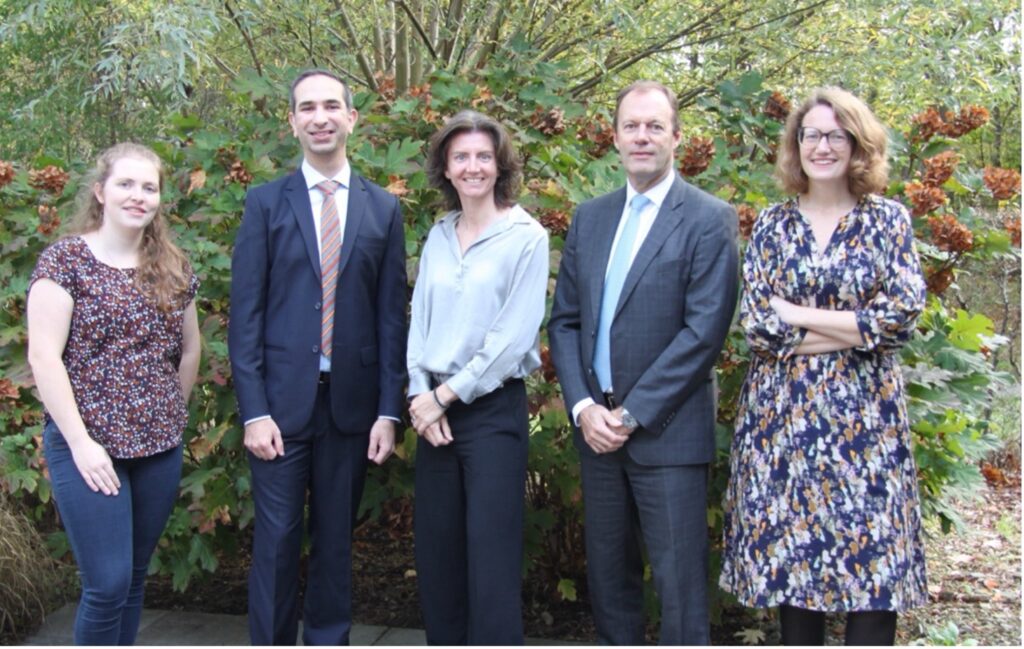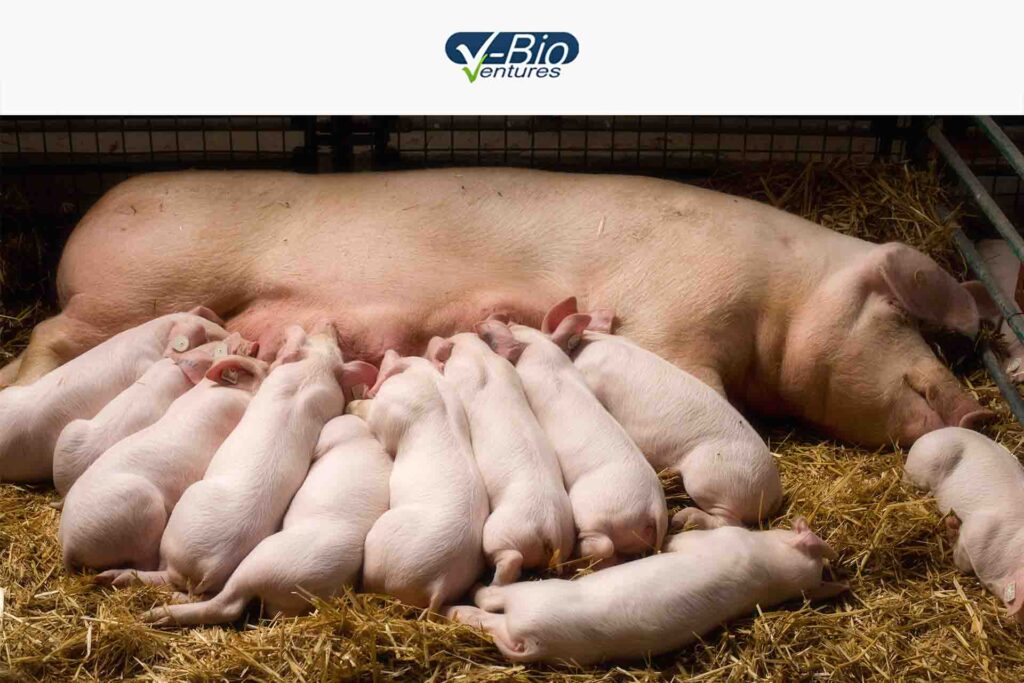Antibiotic-resistant pathogens have become more common in the last decades, which can cause difficult-to-treat infections in both humans and animals. In an effort to manage the situation, Europe no longer allows the use of antibiotics to prevent illness in animals, even those that live among sick ones – they can only be used to treat sick animals. But even beyond the concern of resistance, antibiotics are a worrisome solution to illness treatment as they have far-ranging effects beyond killing the pathogen. As Alain Wille, CEO of biotech company Animab explains, “Treating with antimicrobials not only treats the pathogen, but also affects the microbiome, the healthy environment of our gut, which consists of many different bacteria. A broad-spectrum antibiotic would also wipe that out, which is dangerous as it plays an important role in overall health for animals, just as it does with humans.”
In animals raised as livestock, antibiotics are most often given during a period known as the ‘immunity gap’ when they are highly vulnerable to infection. This is when they are still too young to have fully developed their own immune system (active protection), but have started eating solid food and are no longer receiving antibodies from their mother’s milk (passive protection).
Accounting for animal welfare
“There is a delay between vaccination and being protected. But if you get antibodies directly, you have immediate protection just as you would after an effective vaccination. This is passive immunity.” – Alain Wille, Animab
Wille started his career as a veterinarian but has been working with pharmaceutical and biotech companies on animal health solutions for the past 30 years. In 2020, he started Animab alongside Vikram Virdi, now Animab’s Scientific Director, with the intention of offering an effective and gentle way of protecting animal health during the immunity gap stage. Animab’s solution is ingestible monoclonal antibodies, which can be given orally either in water or in the animals’ feed.
But why bother developing antibodies rather than a vaccine, which has been a standard treatment for decades? The short answer is that antibodies can provide protection much sooner than a vaccine. Wille elaborates: “There is a delay between vaccination and being protected. For example, with the COVID vaccine, it’s about four weeks before you’re protected – between vaccination and the onset of immunity. So, during this period you can be infected and become sick. But if you get antibodies directly, you have immediate protection just as you would after an effective vaccination. This is passive immunity.”
This immediate protection means that young animals are shielded against painful and distressing illnesses, such as diarrhea, during this immunity gap, improving their quality of life. In addition, oral administration makes it easier to protect the animals without interfering with their regular routine.
Animab’s lead product in development targets ETEC (enterotoxogenic E. coli), which causes diarrhea in pigs. The bacteria adhere to the cells lining the intestines and excrete a toxin, which is what makes the pigs ill. Animab has selected antibodies which target the fimbriae (the hair-like structures on the outside of the bacteria), to block them from adhering to the pig’s cells. They then clump together and are flushed out of the body. So these antibodies function by effectively removing the bacteria without killing them. The benefit of this is the animals are exposed to the pathogen which primes them to generate an immune response if they meet it again. It also means that there is less selective pressure on the bacteria, so there is less risk of resistance being developed (as happens when antibiotics are given).

Animab team: (L to R) Gitte Michielsen, Vikram Virdi, Nesya Goris, Alain Wille, Katarina Koruza
As easy as fermentation
These monoclonal antibodies are easy to generate on a large scale using Animab’s production platform, which uses fermentation technology. All that is needed is yeast, sugar, water, and vitamins. It is much more straight forward than vaccine production, which most of the time requires raw materials from animal origin such as mammalian cells. It is therefore also easier to scale up antibody production.
The simplicity of the platform also contributes to its versatility. “We can develop it for different diseases, different pathogens, and then we can broaden the protection from bacteria to viruses, and from pigs to other species,” says Wille. “So this technology is very promising, with multiple applications in different species.”
“We are reaching the limits of what we can do with biosecurity, with new vaccines. This is why our technology is so important and makes such a difference in the future of raising animals.” – Alain Wille, Animab
The platform and the products could not have been developed without the help of a number of partners. The Flemish Institute for Biotechnology (VIB), Vrije Unversiteit Brussel (VUB) and the University of Ghent have all been involved in the research for Animab’s antibody platform. There are also several dedicated investors who strongly support Animab’s approach for the future of disease treatment.
This new treatment is coming at just the right time: it is critical to shift away from the current protection standards. As Wille puts it, “We are reaching the limits of what we can do with biosecurity, with new vaccines. This is why our technology is so important and makes such a difference in the future of raising animals.”


